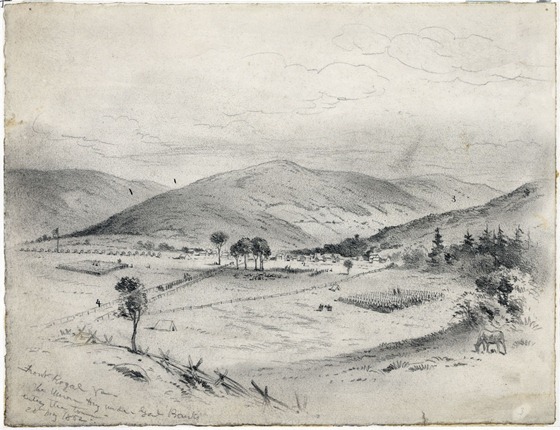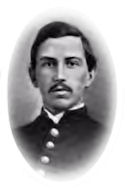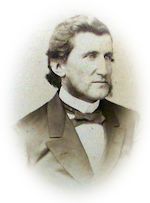May 21.—To-day the battle of Philips’s Creek, Mississippi, was fought by the second division of General Halleck’s army, commanded by Brig. Gen. Thomas A. Davies. The rebels were routed, leaving a good many prisoners, guns, haversacks, blankets, etc., in the hands of the Unionists.—(Doc. 113.)
—Commodore Prentiss, with the United States steamer Albatross, penetrated the interior waters of South-Carolina as far as Georgetown, and up the Waccamaw River ten miles above the city, but having an insufficient force, he did not make an attack.
—General Stoneman, in company with Prof. Lowe, made a balloon reconnoissance this morning, from Gaines’s Mills, Va., and reaching«n altitude of five hundred feet, obtained a complete view of Richmond with the aid of a glass. Very few rebel troops were visible within the limits of the city, but at the left of it, on the line of the road leading to Bottom’s Bridge, a large number were seen.
—At one o’clock, to-day, two mortars opened on Fort Pillow, and the firing was kept up at intervals of five minutes, until six in the evening. It was returned three or four times by guns from the rebels, either from the fortifications or from their mortar-boats, their shells bursting wide of the mark, and doing no damage.
Deserters from Fort Pillow state that one hundred and eighty dead bodies were removed from the rebel rams and gunboats on their return from the late naval engagement On the Mexico, whose boilers were exploded by a well-directed shot from the Benton, every man was either killed or so badly scalded as to render recovery doubtful. None of the rebel vessels, according to this story, were entirely sunk, but three of them were so badly disabled as to be rendered almost useless. The impression at the fort was that they had been badly whipped.
—Three regiments, consisting of the First, Second and Twentieth Kentucky, under command of Col. Sedgewick, made a reconnoissance near Corinth, Mississippi, for the purpose of ascertaining the position of the enemy. After some sharp fighting, which lasted for about two hours, in which he had some thirty men wounded, Col. Sedgewick, being completely successful, returned to camp.—(Doc. 114.)
—Recruiting offices which had been previously closed were reopened by order of the United States Government.
—Brigadier-General I. P. Hatch, commanding the cavalry in Gen. Banks’s division, on his retreat, with a detachment of one hundred and fifty of the Fifth New-York cavalry, attacked a large body of Ashby’s cavalry near Strasburgh, Ya,, killed six, captured the same number, and “drove the remainder before them several miles at a full gallop, without the loss of a man.”
—General McClellan sent the following despatch to the Secretary of War:
“I have just returned from Bottom’s Bridge. Have examined the country on the other side, and made a reconnoissance on the heels of the enemy, who probably did not like the skirmish of yesterday. The bridge will be repaired by to-morrow, and others built as the camps have advanced to-day.”






